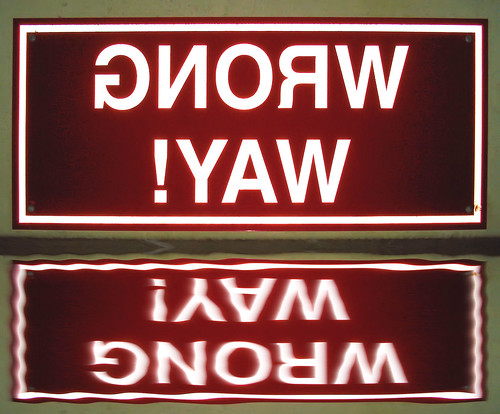
cc licensed ( BY NC SD ) flickr photo shared by Bob.Fornal
If you have been following the Canadian higher education scene, you know that when it comes to copyright policy these are highly charged and troubling times. A recent development has two prominent Ontario institutions making the surprise decision to cut a controversial deal with a Canadian copyright collective. One may feel that the deal represents a capitulation, or have concerns about the process… one may see it as a good faith agreement that respects the rights of creators. I’ll leave that issue aside right now.
For the moment, I want to focus on a couple of statements that were allegedly made by upper administration at the University of Toronto Governing Council Meeting on February 16 – these quotes are drawn from the notes of Howard Knopf, so they may not be exact.
Provost Cheryl Misak is reported to have said “that the UofT was in favour of ‘open access’. However, she indicates that UofT is bound by a ‘statutory body’ called Access Copyright.” Knopf takes issue with the status of AC as a statutory body, but I am more concerned with the misuse of the term “open access”. The fact that there are works that are bound by copyright has no bearing on whether an institution chooses to support open access. This statement seems to suggest “we wish we could be open, but the law prevents it.” As of now, there is nothing anyone can do to prevent an institution sharing its research and teaching materials via open access — though corporate entities are lobbying for laws that might. (That last link via a very good post by Paul Stacey.)
Provost Misak is also reported to say “UofT would like to be like MIT and make as much available freely as possible, but in the meantime needs the AC indemnity to cover ‘missteps in the input’.” Knopf notes that the AC indemnity would not offer this protection. But again, I am more frustrated by the subtle conflation of sharing with legally risky behaviour, and even with infringement. One can easily encourage sharing of created works and exclude copyrighted third party materials. But can’t we use the problems associated with using proprietary materials as motivation to seriously support the adoption of works that encourage reuse? And isn’t infringement going to be less likely if we encourage activity to happen in the open?
Again, I am working off of another person’s notes, and I would be pleased to be informed that my concerns are unfounded. But it’s frustrating to see the problems caused by a broken existing model apparently used as justification to not pursue a viable alternative. We see this dynamic all over educational practice and policy, not just with copyright.
While I am at it, I need to vent about the single most common misconception about licensing that I encounter: the persistent belief that adopting a Creative Commons license means relinquishing copyright. Forgive the descent into flamer all-caps here, but CREATIVE COMMONS DOES NOT REPLACE COPYRIGHT. As noted on the CC FAQ, “CC licenses are copyright licenses, and depend on the existence of copyright to work. CC licenses are legal tools that creators and other rightsholders can use to offer certain usage rights to the public, while reserving other rights.” A Creative Commons license merely assists in clarifying the terms of reuse.
I don’t know exactly why the fear, uncertainty, and doubt around these fairly simple issues is so persistent, but until we can figure out a way to cut through the fog I don’t see a way forward.
Brian Lamb re frustrating misconceptions on copyright issues: CREATIVE COMMONS DOES NOT REPLACE COPYRIGHT
http://t.co/uptXvbbU
“Frustrating misconceptions on openness” http://t.co/ZC8tkXn4 from @brlamb – I run into such misconceptions about CC & open access often.
Frustrating misconceptions on openness | Abject http://t.co/BVdN7bir
Frustrating misconceptions on openness http://t.co/dqAAvmEt
“Frustrating misconceptions on openness” http://t.co/pXDMHJpk from @brlamb via @courosa #CC #openaccess
Thanks Brian I will be mentioning this next week when I appear before the Legislative Committee on Bill C-11.